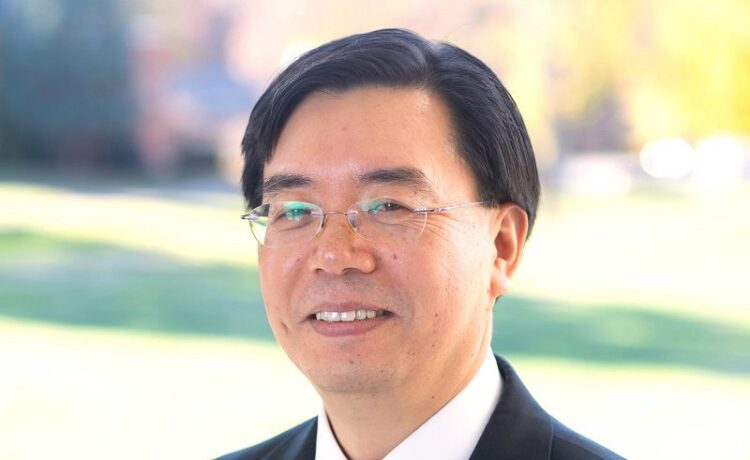Sungjae “Francis” Kim, Department of Business and Accounting.
In Furman University circles, Francis Kim is known as one the newest members of the Department of Business and Accounting. In Korea, Sungjae “Francis” Kim is widely known as a regular columnist for online newspaper Woman Economy, Money Today, the No. 2 economic paper in the country, and South Korea’s newspaper of record, The JoongAng (The Center).
Kim, an associate professor of finance, has lived in the U.S. for nearly two decades. He joined the faculty in fall 2023 after an 11-year career at nearby Gardner-Webb University. At Furman, he teaches corporate finance and international finance, and plans to teach financial markets, investments and risk management. He also serves as a faculty advisor for the Furman Investments Club.
An opinion piece by Kim in The JoongAng (or The JoongAng Ilbo, formally) examined the U.S. Federal Reserve and the technology bubble. Another column looked at investment bubbles from bygone eras. Kim began writing a column every other week as of December 2023 at the invitation from a friend on The JoongAng Ilbo editorial board who was inspired by Kim’s book, “Fed Signal: How Do the Fed’s Flutters Become a Typhoon in Seoul?” The book won praise as a must-read from the Korea’s largest bookstore chain, Kyobo.
Kim has written for Woman Economy since 2021 and writes a monthly column for Money Today, also since 2021.
He said his columns gained popularity because he was able to forecast significant inflation and the Federal Reserve’s “aggressive” interest rate hikes. Kim is a trusted source for comment on all things finance, from monetary policy to Dutch tulip mania, to the British South Sea Company stock bubble and modern-day dot-com and AI stock bubbles. He has also provided commentary in online and broadcast media about the economy, society and politics.
Kim goes home to Korea every couple of years to visit family and indulge in local cuisine and culture. He says like the U.S., Korea is seeing a housing bubble, but on a more protracted scale. “Koreans have suffered from significant housing bubbles for decades,” he said, citing overinvestment in real estate, high interest rates and lower purchasing power for consumers.
Kim said Korea’s focus on education makes for a competitive society, which translates to high levels of expertise and productivity, especially in public services such as transportation. He said the competitive nature of the country bodes well for high-tech companies like Samsung and Hyundai and entirely different industries like K-drama and K-pop.
Meantime, Kim is settling into Furman nicely, noting the university’s strong faculty support. “I enjoy teaching here, and I like Furman’s culture and atmosphere,” he said.

















